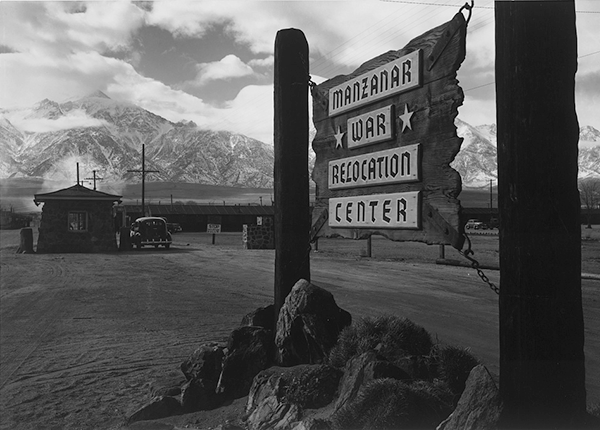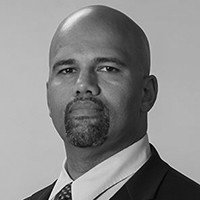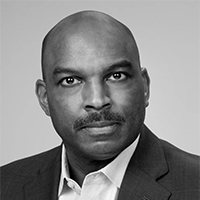Historic Document
Statement by a Man Described as “an Older Nisei” During an Interview in the Manzanar Internment Camp (1943)
Morris E. Opler | 1943

Library of Congress, Prints and Photographs Division, Ansel Adams, photographer
Summary
During World War II, various federal officials, including President Franklin Roosevelt, authorized and ordered the internment of more than 100,000 American residents of Japanese descent, without regard for the internees’ birth in the United States or American citizenship, and with no individualized determinations of disloyalty. This is an excerpt from an interview with an internee described as “an Older Nisei” (an American-born person whose parents were born in Japan) by a federal official. Ultimately, the Supreme Court upheld the constitutionality of portions of the U.S. internment policy in Korematsu v. United States (1944), choosing to defer to the federal government’s assertion that the policy was motivated by national security rather than race prejudice. The Court finally repudiated the Korematsu decision in 2018.
Selected by

Christopher Brooks
Professor of History, East Stroudsburg University

Kenneth Mack
Lawrence D. Biele Professor of Law, Harvard Law School
Document Excerpt
If this country doesn’t want me they can throw me out. What do they know about loyalty? I’m as loyal as anyone in this country. Maybe I’m as loyal as President Roosevelt. What business did they have asking me a question like that?
I was born in Hawaii. I worked most of my life on the West Coast. I have never been to Japan. We would have done anything to show our loyalty. All we wanted to do was to be left alone on the coast. . . . My wife and I lost $10,000 in that evacuation. She had a beauty parlor and had to give that up. I had a good position worked up as a gardener, and was taken away from that. We had a little home and that’s gone now. . . .
What kind of Americanism do you call that? That’s not democracy. That’s not the American way, taking everything away from people. . . . Where are the Germans? Where are the Italians? Do they ask them questions about loyalty? . . .
Nobody had to ask us about our loyalty when we lived on the coast. You didn’t find us on relief. . . . We were first when there was any civic drive. We were first with the money for the Red Cross and the Community Chest or whatever it was. Why didn’t that kind of loyalty count?. . . .
I’ve tried to cooperate. Last year I went out on furlough and worked on the best fields in Idaho. There was a contract which said that we would be brought back here at the end of the work. Instead we just sat there. . . . We had to spend our own money. The farmers won’t do anything for you. They treat you all right while you’re working hard for them but as soon as your time is up, you can starve. . . . When I got back to [Camp] Manzanar, nearly all my money that I had earned was gone. . . .




